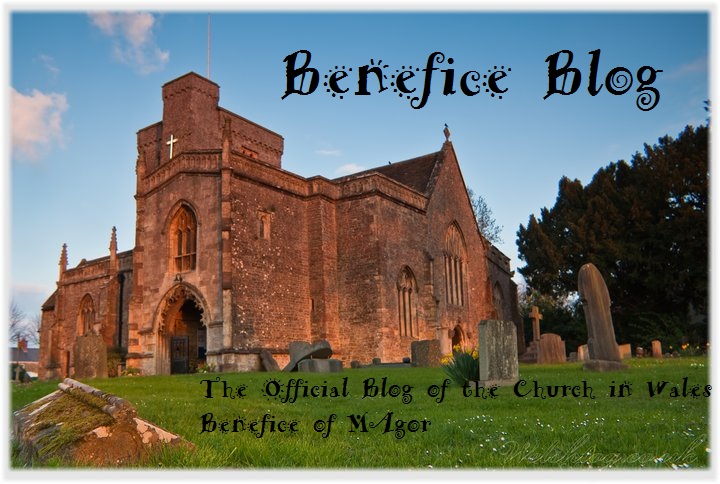Midnight Mass 2010
As I sat to write a sermon for this evening, I realised that I really love Christmas! It’s absolutely fantastic!
There’s no other time of the year when we join in something so important. Meeting in this historic church very late on a Christmas Eve we are taking part in the history of our faith, we are adding another page to the story that is 2,000 years in the telling…so far.
(14th Century)
On the way in this evening we sang Adeste Fidelis the carol we know as O Come all ye Faithful.
The original words are attributed to John of Reading, who wrote a book called “Prose for Christmas Day” around 1320. Just after this church was built on this site.
Much later, the tune (and the rewriting of some of the words) were changed by John Francis Wade, a Catholic Layman who fled to France during the Jacobite Rebellion of 1745. It’s suggested there’s a secret meaning to some of the words. The return of Bonnie Prince Charlie and the secret followers of The Old Pretender Stuart are all supposedly mentioned. The faithful are the ‘Jacobites’ who are being encouraged to return, and Bethlehem, was a code for them to mean England. So this was a carol of rallying the people to return.
(19th Century)
Then, before the Gospel reading we sang that calm and beautiful classic Christmas carol Silent Night. The original lyrics were written in Austria in by a priest, Joseph Mohr. The music was written by Xaver Gruber in 1816 and it was sung the first time on Christmas Eve 1818 in the Church of St. Nicholas, Oberndorf, Austria.
Nearly one hundred years later, in the 1914 Christmas truce of World War One, where troops stopped fighting and left the trenches to exchange gifts with the enemy, this carol was simultaneously sung in three languages (English, French and German) it was so widely known and sung. This is the quiet colossus in the Carolling world!
(20th Century)
Even though Christina Rossetti wrote her famous poem “In the Bleak Midwinter” before 1872, it didn’t appear as a carol until 1906, in the English Hymnal with a setting by the famous English composer Gustav Holst.
It’s a fantastic carol (and probably my favourite) It’s got everything in, it’s like a KFC bargain bucket, the one where you get the fries, coke and the vienetta as well.
In the first verse, she describes the birth of Jesus in Bethlehem. In the second verse she compares the first and second coming of Christ, in the third verse she
writes about the simple surroundings of Christ’s birth. The fourth is usually omitted but it’s about Mary’s love and care for Jesus and the final verse is all about how we should treat others. It’s all there!
(18th Century)
No midnight mass is complete without us leaving to Hark the Herald Angels sing. This carol was written in 1739 by Charles Wesley. Although he was a bit of a sober, sombre man, it’s still possible to sing this carol after a Christmas drink, as a few of you will know. The words are triumphant! In the last verse we sing “sing choirs of Angels” I looked through every Bible I have, and according to them the Angels “spoke” not “sang”, but that’s fine. It’s a good picture!
So, we are in a 13th Century church singing Carols ranging from the 14th to the 20th century. We are hearing the words of those who have translated the Bible down the generations and we are saying prayers and doing things that date back to the earliest days of the faith.
Christmas has given us a wealth of art and music, poetry and philosophy history that goes well beyond the story of the Son of God being born to a young girl 2,000 years ago.
Although the message of Christmas is an unchanging one, we are adding to Christmas just by being here this evening. You are part of the Christmas story, the story of God and his people, the greatest story ever told.
We are creating Christmas!
That’s why I’m a Christmas person! In Church we speak of the Incarnation – the birth of Jesus - and at Easter, we speak of the Atonement; the crucifixion, death and resurrection of Jesus. I understand you can’t have one without the other, but I have to say that Christmas is for me, as C.S Lewis calls it ‘That Great Miracle’.
This year we are ‘creating more Christmas’ as we think of the real message of Christmas. This year we are adding to the story when we join as ‘community’ to celebrate with the people of faith from the last 2,000 years. This year, as this church resonates to music and carols this evening we are making history, and building faith. Tonight we are doing the same thing as those who came to worship here 700 years ago.
We can either fill it with stress and worry, or we can fill it with love and care. Archbishop John Sentamu cut through the Christmas theology to give us his considered message, he said;
“It’s xmas not stressmas”
May God give us all a break this Christmas and put us into the Christmas story in our time, creating something good and new, in the name of God; Father, Son and Holy Spirit. AMEN




